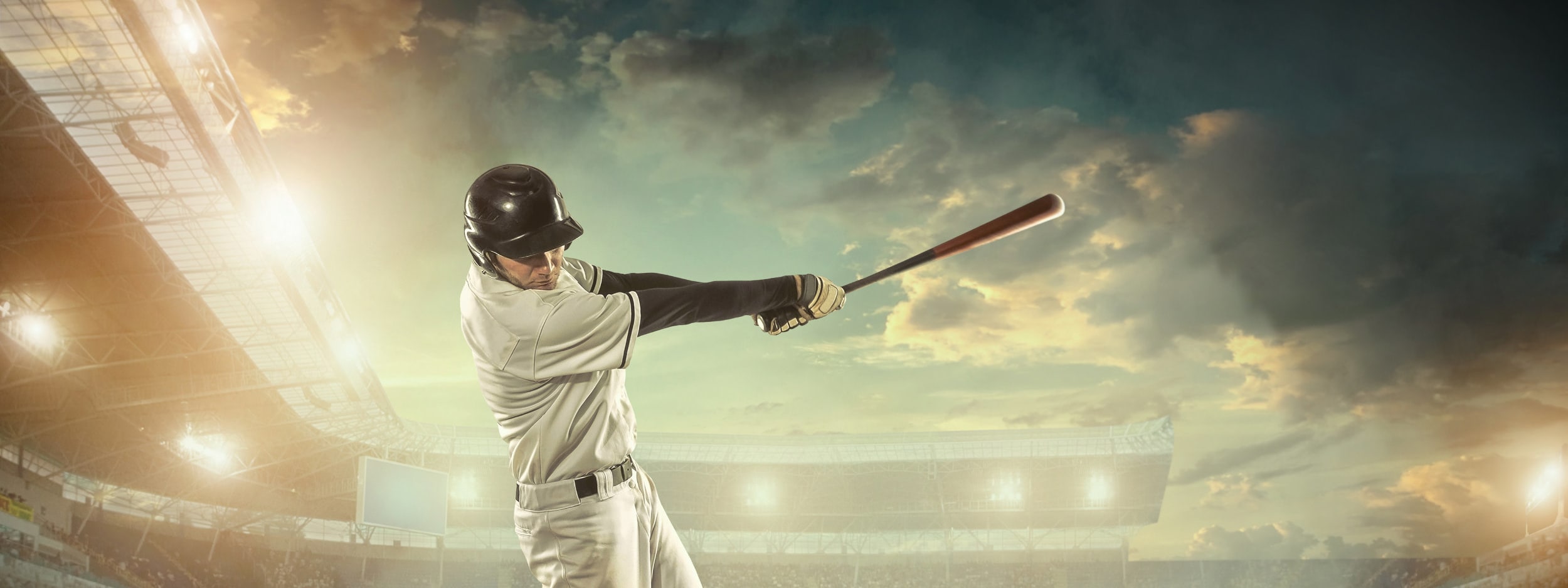Minor League Game Log

Calculate Stats Over Time
Just click on any two dates.
Loading Minor League Batting Game Log...
Loading Advanced Batting Stats...
Games By Position
Defensive Stats
Loading Games Played by Position...
Loading MLB Defensive Stats...
Loading Batted Ball Stats...
Stats Vs Upcoming Pitchers
Recent RotoWire Articles Featuring Nate McLouth
See More
No player in baseball may have made more money per appearance than McLouth has over the last two seasons. The veteran outfielder signed a two-year, $10 million deal with the Nationals following something of a rebound campaign with the Orioles in 2013, but he lasted just 139 at-bats in 2014 before a shoulder injury cost him not just the rest of that season but all of the following one as well. 34-year-old players who haven't taken the field in eighteen months don't typically get a lot of attention on the free agent market, so McLouth may have to settle for a minor league deal and spring training NRI, at best, if he wants to continue his career. If he can get healthy and return to form, however, his ability to hit for a bit of power, steal the occasional base and play solid defense could eventually get him back to the majors.
Coming off a rebound season in Baltimore, McLouth hopped on I-95 and headed down to DC to take over the Nationals' fourth outfielder job, but things didn't exactly go as planned. A knee injury limited his effectiveness early in the year before a torn labrum shut him down for good in August, and in between he couldn't get much of anything going at the plate, hitting just .173 with a single home run and a disappointing four steals. The veteran left-handed hitter is an ideal backup for a contending club when he's healthy, capable of filling in at all three outfield positions while chipping in a little bit of everything offensively, so assuming the surgery to repair his shoulder went without a hitch, McLouth should be able to fill the role he couldn't last season. Given Bryce Harper's injury history and Jayson Werth's age, a healthy McLouth might have more fantasy value than you'd expect in 2015.
Originally intended to be a platoon player, the Orioles used McLouth in 146 games due to injuries to Nolan Reimold. It was a tale of two seasons for McLouth, who hit .275 with 24 steals in the first half before sputtering with a .233 average and four steals in the second half. McLouth would be better served in a platoon role after hitting righties at a .272/.342/.411 clip, compared to a dreadful .209/.283/.357 line against lefties. The Nats signed him in December, which puts McLouth in position to work as a fourth outfielder in 2014.
Exiled from Atlanta, McLouth was unproductive in his return to the Pirates, which led to him being dangled on waivers. The Orioles claimed him and McLouth spent some time in Triple-A before being promoted to fill a big void in the outfield. Though he delivered some timely hits down the stretch and in the playoffs, McLouth's .241/.314/.380 line for the Pirates and Orioles does not even give him an OPS over .700 for the season. McLouth's groundball percentage has been the lowest of his career over the last two years at 47.4 percent in 2011 and 42.6 percent in 2012. His solid split with the Orioles (.268/.342/.435, 12 steals) may have revived his career. Back with the Orioles, McLouth will likely be used as a fourth outfielder in 2013. His numbers show him to be an average killer, which leaves fantasy owners left to pray that he can provide enough power and speed to offset that deficiency.
McLouth had a second consecutive injury-plagued and unproductive season with Atlanta and will need to rebuild his career in a reserve role with Pittsburgh. After hitting .310 with a .863 OPS in spring training, it looked like McLouth may rebound from an injury-plagued 2010 season and return to the All-Star form he showed with the Pirates. However, he slumped once the regular season started hitting just .238 with a .697 OPS before going on the DL with an oblique injury May 23. He returned a month later, but continued to struggle before a season-ending sports hernia injury in late July. While he still draws walks at a good rate, his power declined significantly the past two seasons, he's almost unplayable against left-handed pitching (.179 against lefties last year) and he's been a liability in the field. Perhaps he can revive his career where he had his best seasons, but he would seem to have little upside is as a platoon player with significant injury risk.
When the Braves traded for McLouth in June 2009 it appeared they'd solved their problems in center field. But after a miserable season, his role with the Braves in 2011 is uncertain. McLouth began the season as the starting center fielder but started slow and slumped into June, hitting just .176/.295/.282 before the All-Star break. The only end to his slump was when he missed a month after suffering a concussion in June. He was then sent to Triple-A in July. It looked like he'd languish in the minors or on the bench, but he was called up in September and moved back into the starting lineup when others slumped. He responded by hitting .273/.359/.527 the final month with three home runs. Even with his struggles last season, he still draws walks at a good rate. However, he struck out too much last season and wilted against left-handed pitching (.378 OPS). Still, McLouth's hot September could get him back into the outfield mix during the spring. While he was a 20-20 player in the past, his upside now may be that of a productive platoon player with some power and a tolerable batting average.
McLouth enters 2010 as Atlanta's everyday center fielder. He was traded to the Braves in June to fill the void in Atlanta's outfield and at first glance seemed like a slight disappointment by hitting .257 with a .773 OPS. But looking beyond batting average there's a lot to like for fantasy owners. McLouth has good power, draws walks at a good rate and also has enough speed to steal 20 or more bases. He also has above average range in the outfield (11th among all outfielders per nine innings last season) which should keep him in the lineup. Despite a decent contact rate and good eye at the plate, he's had a low batting average the past four seasons. There's some upside here as a result, so don't let a player who can help you in multiple categories go too cheap.
It almost seems like there's nowhere for McLouth to go but down after his breakout season of 2008. McLouth belted 26 home runs and stole 23 bases while winning a Gold Glove in center field. One thing that could work in his favor is a move to left field at some point, should the Pirates decide to call up Andrew McCutchen. With the Pirates in rebuild mode, however, only McLouth and Ryan Doumit qualify as consistent producers and both will likely be pitched around following trades of Xavier Nady and Jason Bay. Because of a lack of protection, it wouldn't be surprising to see McLouth's power numbers dip while his stolen-base numbers stay about the same. He's one of the few Pirates considered fantasy worthy heading into 2009.
After a couple years of struggling, McLouth showed that he has a future in the major leagues in 2007. Pegged as no more than a fourth outfielder in the big leagues, McLouth hit 13 dingers in 329 at-bats and stole 22 bags last year. Of course, the only reason he got the chance to showcase his skills was because Chris Duffy, Xavier Nady and Nyjer Morgan all got hurt. Then, after an August during which McLouth hit seven homers, drove in 17 runs and stole 10 bases, the Pirates decided to cut his playing time in half the last month of the season. New GM Neal Huntington promises a spring training competition between McLouth and Morgan for the starting center fielder spot, with Chris Duffy starting out in Triple-A. Plenty can change, but at long last there's reason to believe McLouth can succeed as something more than a fourth outfielder. Follow him in spring training as his ability to steal bases makes him somewhat of a late-round fantasy sleeper.
McLouth missed out on a golden opportunity to establish himself at the major league level in 2006. After unexpectedly fighting his way onto the Pirates' roster coming out of spring training, the 25-year-old outfielder batted just .224 while platooning with Chris Duffy the first three months of the season. Then, during Chris Duffy's self-imposed seven-week absence McLouth was passed by the versatile Jose Bautista on the depth charts. An ankle injury cost him the final eight weeks of 2006. While he's shown spurts of power and is a speedy base runner (he stole 10 bases) McLouth lacks the plate discipline to be considered a contender for a regular spot in the lineup and projects as a gritty fourth or fifth outfielder.
McLouth will likely begin the season as a backup outfielder for the Bucs. While he only stole two bases in 41 games for the Pirates last year, McLouth led Triple-A Indianapolis with 34 steals, hitting .297 in the process. The organization doesn't appear overly high on the 5-11, 180-pounder who can play anywhere in the outfield, but his hustling style is infectious and hard to overlook. He's a darkhorse for playing time in Pittsburgh's outfield, but anyone who can steal 30-plus bases at the Triple-A level is at least worth keeping an eye on.
McLouth opened up eyes at the Double-A level in 2004, hitting .322 with 8 homers and 73 RBI along with 31 stolen bases. The outfielder set Altoona Curve records for hits (166) and doubles (40) and posted the second-highest single-season batting average in team history. At just 23, he will be young for Triple-A, but there is nothing left for him to prove at Double-A after his outstanding campaign. He was added to the Bucs' 40-man roster and will spend 2005 at Indianapolis.
The Carolina League (Class A) All-Star batted .300 with 6 homers 33 RBI in 440 at-bats along with 40 steals (he was caught just four times) at Lynchburg in 2003. He is still a long way from the majors, but the 22-year-old speedster is a sparkplug who could create a buzz as he climbs the Pirates' corporate ladder.









